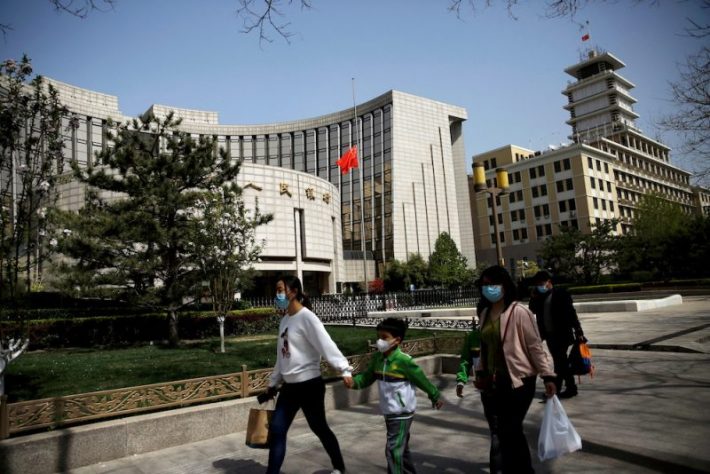China stepped up its monetary easing efforts to prop up a slowing economy this week by lowering a set of key policy rates and lending benchmarks, and markets believe Beijing could ease further before growth bottoms out.
The People’s Bank of China (PBoC) lowered the one-year loan prime rate (LPR) by 10 basis points to 3.70% from 3.80% while the five-year LPR was reduced by 5 basis points to 4.60% from 4.65%, the first reduction since April 2020.
With the property downturn seen persisting into 2022 and the fast-spreading Omicron variant dampening consumer activity, many analysts expect more easing measures will be necessary.
“Today’s reductions to both the one-year and five-year LPR continue the PBoC’s efforts to push down borrowing costs,” Julian Evans-Pritchard, China economist at Capital Economics, said.
“We expect additional easing to follow in the coming months, including measures to push down deposit rates,” he added.
More Monetary Easing
The LPR cuts were expected after official comments called for more monetary easing to prop up the broad economy.
All 43 participants in a snap Reuters poll predicted a cut to the one-year LPR for a second straight month. Among them, 40 respondents also forecast a reduction to the five-year LPR rate.
The cut to the 5-year LPR suggested that “Chinese authorities are keen to lower the cost of credit lending”, chief financial analyst at MUFG Marco Sun said.
He said total credit growth is expected to rebound after the forthcoming spring festival to ease the pressure on macro economy.
“China’s monetary policy still has some room for easing in the first half of this year, depending on the policy transmission effect and the growth target set by [the] annual parliamentary meeting in March,” Sun added.
However, Nomura analysts said the impact of the LPR cuts would be limited.
“These cuts are too small to have a material impact, as they are unlikely sufficient to clear up the real bottlenecks and because rates on existing mortgage loans will not be reset this year,” Ting Lu, chief China economist, said.
- Reuters with additional editing by George Russell
READ MORE:
PBOC Likely To Hold Rates Over Stagflation Fears: Analysts
China Cuts Interest Rates on Policy Loans, More Easing Ahead
PBoC Allocates $13.4bn for Carbon Reduction – Xinhua
























